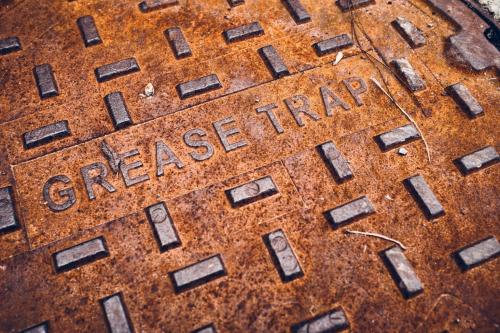Know How Grease Trap Cleaners Benefit Waste Collection Services

Every year, commercial kitchens and households in Australia generate 3.3
million tonnes of food waste. The increasing amount of trash produced
emphasises the importance of waste collection services in order to protect the
environment and community health. Garbage removal companies must treat food
waste and grease
trap waste with caution because it damages sewer systems. By collecting
trash and preventing it from entering the main sewer system, a grease trap
prevents blockages. It is not enough to have a grease trap to collect waste;
grease trap cleaning is also required.
Collection of grease trap waste
A grease trap collects garbage from both residential and commercial
kitchens. The majority of grease trap waste is made up of fatty acids, oils,
and greases (FOGs). They are containers that are installed within the kitchen
sink and appliance drains and connect to the sewer system. Waste collection
companies use grease trap cleaning services to keep drains clear. These traps
can be made of stainless steel, mild steel, plastics, or even concrete.
Locations where grease traps are necessary
Every location where fats, oils, and grease are present generates grease
trap waste, which must be captured in order to keep the drainage system in good
working order. It can be found in restaurants, cafes, fast food joints,
taverns, hotels, schools, and universities. Waste disposal companies refer to
these traps as grease interceptors, catchers, converters, and management
devices.
Services of grease trap cleaners are crucial
Managing grease trap waste is one of the most difficult chores for waste
collection service providers. For grease traps in commercial kitchens to
function efficiently, they must be properly maintained. Listed below are
several reasons why grease traps should be cleaned:
Foul smell
Grease-trap waste contains fats, oils, and grease that degrade over time
and emit an awful smell. The odour could disrupt daily operations and give a
terrible impression on consumers visiting the café, restaurant, or another
business-oriented establishment with a commercial kitchen.
Tank replacement is pricey
One of the benefits of using waste disposal services is their low cost.
Grease trap cleaners are preferable to tank replacements. If grease trap waste
is not treated, it decomposes and produces hydrogen sulphur gas, which converts
to sulphuric acid. This poisonous acid corrodes the steel and walls of the
grease trap, which must be replaced as soon as possible for improved waste
management services.
Harder cleaning
Cleaning grease trap waste with the assistance of waste removal
professionals makes life easier for the business owner and employees. The
grease trap collects the fats, vegetable oils, and other food particles that
settle at the tank's bottom. If solid trash is not regularly removed, it
develops a solid mass that is immovable and impossible to clean.
Because the drainage system is compromised
Continuously collecting oil and solid food waste in a tank or grease
trap and leaving it uncleaned for several days or weeks can cause the tank to
become clogged with food, and extra waste from kitchen sinks and dishwashers
can clog the sewer system. Repairing such damage is costly and necessarily
requires the immediate replacement of numerous components.
Protection from penalties
Authorities and several regulatory agencies monitor the garbage disposal
services that commercial property owners utilise. The absence of a grease trap
waste management plan for commercial kitchens might result in a significant
fine for the business owner. To avoid such circumstances, it is recommended to
install a grease trap in the kitchen.
To avoid business losses
A lack of a grease trap cleaner could harm your reputation and force you
to pay a hefty fine. Any such action can halt normal business operations and
bring your company to a halt. As a result, wise commercial kitchen owners
always choose grease trap waste control plans.
When should grease traps be cleaned?
Grease interceptors must be emptied and cleaned every three months,
according to reputable waste management company Summerland Environmental, which
is well-known for providing waste management services in Australia. The length
of cleaning is also determined by the volume of the grease trap and the number
of dishes prepared each day. For optimal performance, grease traps should be
cleaned once or twice a month. The record for grease depth can be determined
using a rod.
Grease trap processing with Summerland Environmental
Filtration and screening are performed first, followed by pH adjustment
and sludge and water separation using a dissolved air floatation process. This
process's solids or sludge (grease oil and fat) are dewatered and formed into a
bio solid that is used as a soil conditioning additive, while the water
component is aerated until the biochemical oxygen demand (BOD) is reduced to a
council sewer acceptable level. Call 02 6687 2880 now or visit us at:- summerlandenvironmental.com.au
for a free quote on liquid waste management services in the council areas of
Lismore, Ballina, Byron, Kyogle, and Richmond Valley.
Post Your Ad Here
Comments